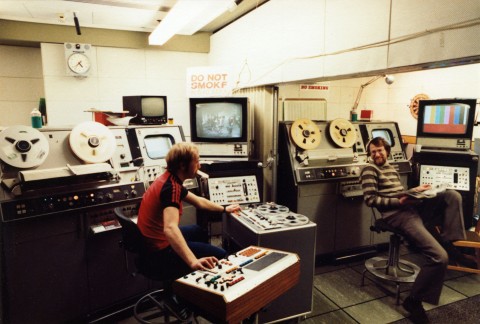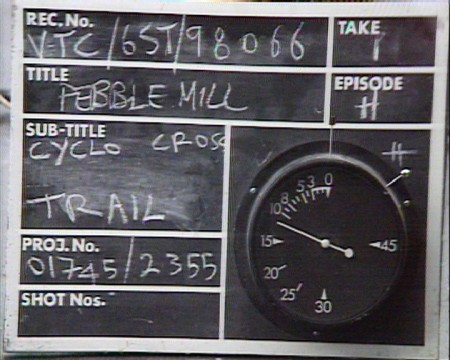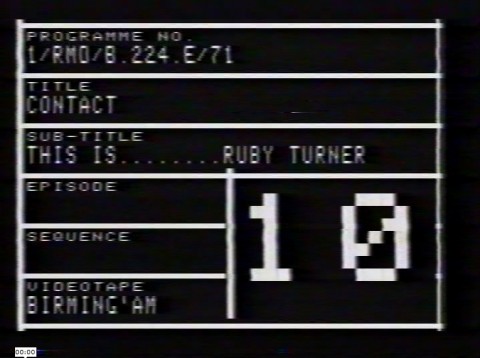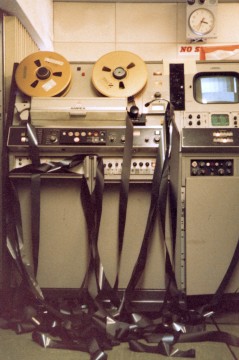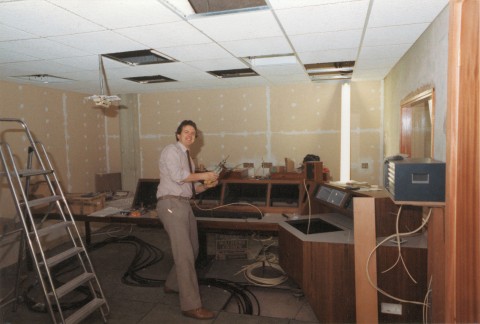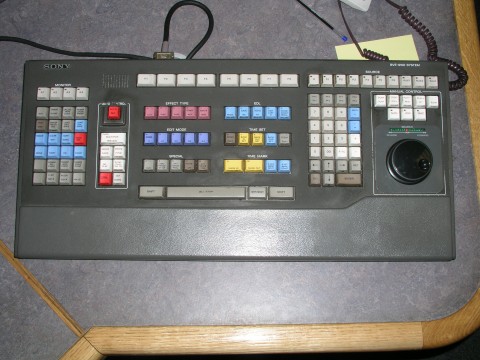VT Christmas Tapes
There was a tradition in VT to compile together a series of funny out-takes from the programmes, into a programme for internal viewing at Christmas. Quite where it started I don’t know, but it also involved colleagues at ATV, and London VT. The most famous were “White powder Christmas” and “Good King Memorex”. This was at a time when the BBC was pretty straight laced, and it was unthinkable to broadcast actors failings. It became quite well known among the regular actors, who when they had stumbled, or let rip with an expletive, would quite often add “Merry Christmas VT”
In the run up to Christmas there would quite often be mysterious line bookings, late night edit sessions, and other clandestine goings on, in order to complete these works of art. Initially managers turned a blind eye to it, but it got clamped down on when it started to impinge on genuine bookings. As the years went by VT editors had become ever more ambitious and the process was taking away too much effort from genuine work. However it later became legitimised to some extent with the programme “It’ll be Alright on the Night” Somehow there was never quite the same incentive to try to create Christmas tapes again.
Ray Lee
The following comments were added on the Pebble Mill Facebook Group:
Jane Clement: .We all loved those Xma VT tapes – they were greatly anticipated every year. It was always funny for people in different parts of Pebble Mill to see the gaffs in other areas as well as their own. On Pebble Mill at One we were responsible for quite a few outtakes as we were live to air – the presenters in particular were always a bit nervous as the great Xmas unveiling approached! I seem to recall Drama had its fair share of the tape too, and Midlands Today. But any program (and anyone) was fair game for the VT boys.’
Stuart Gandy: ‘I think if you look on you tube you can at least find parts of them. The first time I remember seeing one was towards the end of my A course at Wood Norton when our course lecturer had obtained White Powder Christmas on tape. This was just before Christmas of 1979. It was so funny, and as Ray says it was of footage that would normally have been thrown out. The story goes, from the grapevine, and I could be wrong here, that it was produced during the strike in the run up to Christmas the previous year. White Powder Christmas was so successful, that the following year Good King Memorex was made, altogether much more polished.’
Peter Poole: ‘Copies of the tapes got into the hands of the tabloid press. These papers printed a story that presented the BBC in a poor light. It was the usual BBC bashing. The BBC then banned production of the Xmas tapes. Even out takes must not be kept.’
Keith Brook: ‘Yes. Another classic example of bad management. The tabloid story was based on ‘wasting’ licence payers’ money, which wasn’t true of course because it was in their own time and at no cost to the BBC. The management could have just let the story wither on the vine but instead over reacted and threatened dismissal of anyone caught making a Christmas tape. That’s why the following year it was an ‘Easter’ tape!!’
